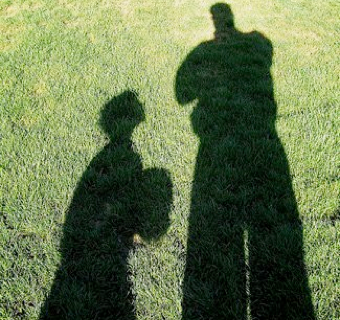Follow Up to Fathers and Sons
| Dan Bolton 03/16/2012 |

Last week I started a discussion about connecting with fathers. I was not surprised to read both positive and negative responses, as people’s experience and relationship with their father varies. Not everybody had an involved, loving father. Some people may have had a downright abusive experience with their father, or never knew their father at all.
Let me take this moment to ask the question: Who has ever felt strongly they want to be closer to their father? Who has ever felt disappointed by or even ashamed of their father? Probably most men have felt one way or another about their father, and these are powerful emotions to experience indeed. No matter what or how intense the negative experience might have been, I can say with confidence that all people, universally, have had the desire to connect with their father. Otherwise, why would people who are adopted, brought up by great adoptive families, go out of their way when they grow up to find their parents? Even the folks who responded negatively felt strong enough to say something about their father. The negatively emanates from a deep disappointment of the desire they had as a child to connect with their father.
To add yet another wrinkle, children who grow up without a father being around at all, or abandoning them at a very young age, tend to idealize their father, or seek out and latch onto certain images of strength and power, including celebrities, sports figures, rock stars, and spend a lot of energy trying to live up to these idealistic images of what a father is.
Now how about this- how many of you have felt both emotions about their father? I’d be willing to bet that even those who have had amazing experiences with their fathers have at some point felt embarrassed or ashamed by him as well. Humans don’t feel love without at least some ambivalence. It is simply part of our psychology. The better the father, the more dissonant it probably was or is to accept feelings of shame about one’s father.
A large source of emotional difficulties I have encountered with men has to do with shame. The anger and rage reported to be more prevalent in men often finds it’s source in feelings of shame feeling not good enough. This may be due to one’s father pushing their son to achieve, giving the message that what the child wants for himself is not good enough. Shame a man feels about himself can also emanate from shame he feels about his father, which he believes reflects on him.
You are reading Dan Bolton’s blog on www.danbolton.com
Email Dan Bolton, LMHC at: danboltonlmhc@me.com
